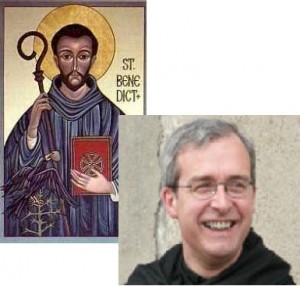Whilst writing this I am mindful of the fact that it just happens to be a bit late in the day; in another sense, the ‘horse has almost bolted’, but then a very old adage points out, quite rightly, that it may be better to act late, rather than never. Having said all that, something a week ago ‘kick-started’ my brain into action, and the thoughts ‘raining down’ into my mind focussed on Our Lady and her month – the month of May.
 |
Looking back over the years, often with ‘rose-tinted’ spectacles, is something older people do, and I find myself no exception. In the ‘days of yore’, it seems to me that the month of May was always blessed with fine, warm and sunny weather, the flowers in the gardens, the fields and the hedgerows always so beautiful and we, as children, loved to play out in the month of May, not only for all that, but because it was a very happy month dedicated to Our Blessed Lady. As Catholics, the Church, and churches through England and many parts of the world, celebrated the Month of Our Lady with prayers and devotions, with the May processions and the Crowning of Our Lady as Queen of Heaven. I can remember, as if it were only yesterday, the (often large) congregations walking in procession, inside and, weather permitting, outside the church, carrying the statue of Our Lady about to be ‘crowned’, young girls – ladies even – dressed in white, preceding the statue carried shoulder high, strewing flower petals in her path and the singing of some the most beautiful hymns I ever heard in church, for example:
Bring flowers of the rarest,
Bring blossoms the fairest,
From garden and woodland and hillside and dale;
Our full hearts are swelling,
Our glad voices telling
The praise of the loveliest flower of the vale.
O Mary, we crown thee with blossoms today,
Queen of the Angels and Queen of the May,
O Mary, we crown thee with blossoms today,
Queen of the Angels and Queen of the May.
From Greek and Roman times, May was very much connected with the idea of new life – the season of new beginnings. In Greek culture, May was dedicated to Artemis, the goddess of fruitfulness. In Roman culture, May was dedicated to Flora, the goddess of bloom, of blossoms. The Romans celebrated their ‘Floral Games’ at the end of April, asking the intercession of Flora for all that blooms. This is also related to the medieval practice of saying goodbye to winter. May Day – the first day of May – remember the dancing around the’ May-Pole’ – was considered the beginning of spring-time, of new growth, and all this is reflected in the person of Mary. The month of May was – and still is – traditionally dedicated to Mary, throughout many cultures, and the reason is not hard to find. Mary gave birth to Jesus and a new way of life for the world.
For the early Church, we know that devotions to Our Blessed Lady go back all the way to the times of the Apostles, the first Christians and their immediate descendants. Saint Peter Chrysologus (c.380-c.450), Bishop and Doctor, whose feast is held July 30, was convinced of the necessity of devotion to Mary. He wrote the following powerful words almost 1,600 years ago:
“He who is not awestruck by this Virgin’s spirit and who does not admire her soul is ignorant of how great God is. Heaven trembles, angels quake, creation cannot bear it, nature is helpless—yet a girl carries God in her womb; she receives Him into herself and offers Him a dwelling place.”
As long ago as in medieval times, it seems that some nations of Europe made the connection between Our Lady and her month – the month of May. In the early days, certain feasts were dedicated to Our Lady in May, and then later, in the 18th and 19th centuries, the cultures of Spain, Italy and France introduced the idea of dedicating the whole month to Mary.
 |
Daily devotions to Our Lady began, I think in Italy, in the 19 Century, and many churches held the daily recitation of the Rosary and other prayers to Mary. The highlight of the month was the procession and the crowning of Our Lady’s statue. The important thing was that Mary should be honoured in a special way. At one time, our domestic celebrations of the month of May were widespread. In more recent times, many homes used to set up a small May altar in honour of Our Lady. Some of our most lovely prayers are dedicated to her. I am thinking of the Prayer for England and the ‘Hail Holy Queen, Mother of Mercy’, and think to myself that, sadly, we do not seem to recite these, as a congregation, quite as often as once it was our joy so to do.
So, what has happened in the intervening years? Crowning processions – the May processions – prayers to Our Lady, the weekly praying of the Rosary before Benediction, even the singing of hymns to Our Lady – all of these devotions do not happen these days; if they do, they are a rarity! I find myself unable to provide meaningful answers to such questions. Nor can I understand, why it should be that our concentration appears to have shifted direction – not entirely, away from Mary, the Mother of God, but as congregations go, our devotions do not seem to include her, as once they did. In the main, she is left to our minds and hearts – as individuals – in private prayer.
I conclude with the Prayer for England, composed by Cardinal Wiseman – one of the most beautiful prayers I have ever heard – and we used to say it every week without fail, many years ago:
O Blessed Virgin Mary, Mother of God and our most gentle Queen and Mother look down in mercy upon England, thy dowry, and upon us all who greatly hope and trust in thee. By thee it was that Jesus, our Saviour and our hope was given unto the world; and He has given thee to us that we might hope still more. Plead for us thy children, whom thou didst receive and accept at the foot of the cross, O Sorrowful Mother, Intercede for our separated brethren, that with us in the one true fold, they may be united to the Chief Shepherd, the Vicar of thy Son. Pray for us all, dear Mother, that by faith, fruitful in good works we may all deserve to see and praise God, together with thee in our heavenly home. Amen.
Perhaps, because of its connotations of ‘Oneness’ ‘Trueness’ and aspects of separatism, we no longer recite this prayer; certainly, in making this point, I applaud the massive steps that have been taken to bring the different Christian churches closer together and intend no offence, whatsoever. But, to return to Our Lady and her Month of May, I still wonder what we have done with the devotions to Our Lady as time has gone by?
(Unfortunately, in sending out this blog by e-mail, ‘Word Press’ distorts the original formatting of the document. Readers are, therefore, advised to visit the website www.stmarysblog.co.uk should they wish to read it in its intended format).
Socius






